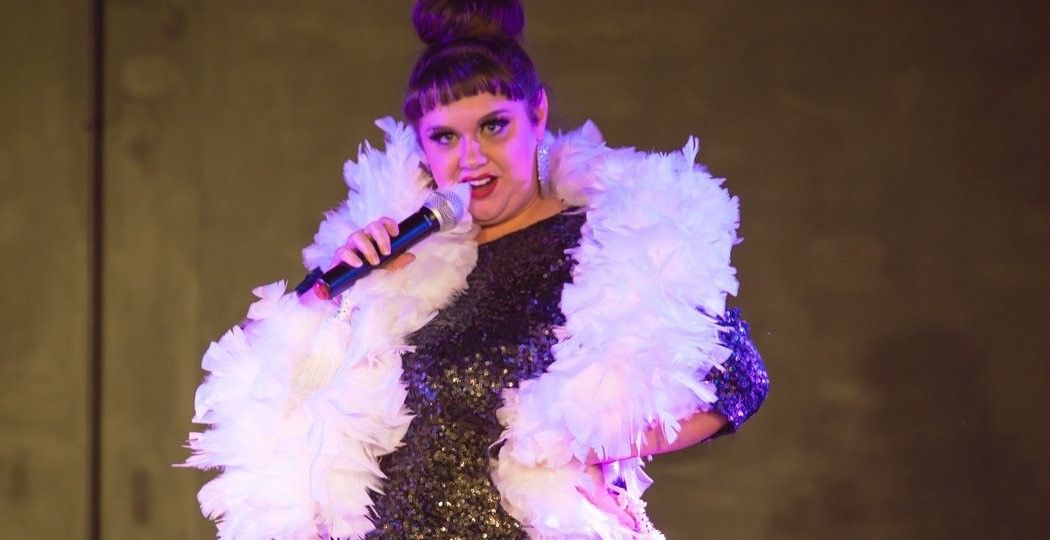
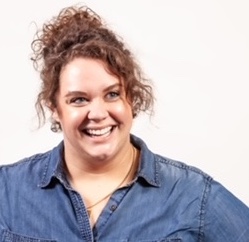
No one is “just” one thing. People can be both a wife and a sister. A swimmer and an accountant. A pescatarian and a Presbyterian. As for Gwen Sunkel? She’s both a palliative nurse and comedian, two identities that are, depending on the day, full of joy, sadness, trauma, and laughter.
You are both a nurse practitioner and a comedian. Has anyone ever expressed surprise at how “different” your identities are?
People are definitely surprised to learn that I spend my days working in healthcare and my nights making people laugh in exchange for drink tickets and chicken fingers. I work in palliative care, which is when patients have a life-limiting illness but may live with it for several years before reaching the end of their life. My colleagues are probably most surprised that I do comedy outside of work. Our work is often heavy, time consuming, and siloed, so I don’t have many opportunities to cut up with them.
I spend a lot of my day listening to people talk about their symptoms, concerns, and fears. In comedy, though, I do most of the talking when I’m onstage. The most important skill I need for both roles, though, is being observant. As a nurse, I know how to recognize subtle differences in people’s physical presentation, which can indicate a change in their health status. As a comedian, I try to recognize subtle differences in the audience’s response. Like, “Oh, people laugh harder when I say that joke this way.” Being a keen observer means I can write a better joke.
Some people use comedy to make sense of life. To what extent do you use comedy to process what you’re feeling?
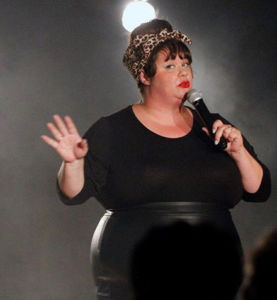
All emotions are complex — some just feel more comfortable than others. Part of why I love comedy is that you can experience a full range of emotions during someone’s act. Comedians are experts at finding the “nugget” of darkness in an otherwise happy situation and, conversely, finding what’s joyful or funny in dark times. Like, “Why am I laughing at a joke about someone’s funeral?” Because no matter how sad or tragic a scenario is, there’s something that warrants a giggle. I find laughter healing.
How else do you express yourself?
I enjoy painting, being in nature, and spending time with my friends and family, including my senior wiener dog, Sherman, and my cat, Franklin. I also love going to drag shows, plays, and music performances. Seeing how other genres process emotions is interesting and important.
Tell me about Erin Carr.
Erin was a treasured friend, and we truly understood each other. We met doing standup comedy. We were both a little older than most people are when they start going to open mics, so we didn’t always have much in common with people in their early 20s. We had both been divorced and while everyone else at the open mic was going to the bar afterward, we had to be up for work the next morning.
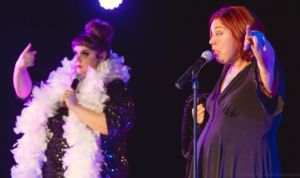
We both came from other performance genres and had high standards for ourselves and the productions we were a part of. We were passionate about booking diverse lineups and making sure that more women, queer people, and BIPOC got onstage. We were both doing comedy because we loved it, not because we expected to become successful.
She taught me so much about viewing performance outside of the lens of competition — that someone else’s success wasn’t my failure. When everyone succeeds, the real winner is the audience, because they get the best show possible. Erin also had primary pulmonary hypertension, a very rare chronic medical condition. I am very fortunate to have an extensive background in cardiac nursing and palliative care, so that unique intersection of experience meant I understood her illness and its trajectory probably as well as anyone outside of her providers.
What is the most joyful thing about nursing? About being a nurse practitioner?
Life seems so precious now. I work with a lot of elderly patients, and I love the “couldn’t care less” attitude many of them develop. They know what they like and don’t apologize for it. Listening to their stories and advice is a delightful and amazing learning experience.
What is the most painful thing about comedy? About being a comedian?
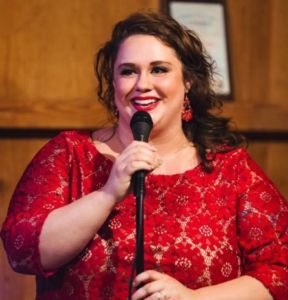
The saddest thing about comedy is the number of people who are so much funnier than you and who no longer do comedy. People quit standup comedy at an alarming rate. Priorities change for lots of different reasons. People get tired of rejection and driving 300 miles to perform for six people. They realize standup comedy is more than just being the “goofy guy” at work. Comedy attracts weirdos and outcasts. Some with chronic illnesses, some with complicated relationships to drugs and alcohol, and many with mental illness. Sadly, those people often leave us before we’re ready.
You’ve been able to use comedy to raise awareness for important causes.
Yes! After the 2016 election, we wanted to do something, specifically, to make Mike Pence disappointed in us. So, we started putting on benefit shows for The Hoosier Abortion Fund, Planned Parenthood, and The Damien Center. A secondary benefit of the show was that a talented group of non-male comics could perform in front of a new, enthusiastic audience.
You sometimes talk about work in your acts. Do any of your patients know about your comedy career?
I try to keep work and comedy separate. It would be unethical to tell a completely true story about a patient. Sometimes a story will be inspired by a real event or person, but in its final form, it has very little truth in it. Even if a comedian says, “I swear, this is 100% true,” they’re probably lying.
Dawn Olsen is the founder and president of Make Words Go, an inside-joke-turned-LLC. Dawn also writes creative nonfiction and spends far too much time on Twitter. In fact, she’s probably thinking about Twitter right now. Either that or her cat, Ruth Kitter Ginsburg.
All of our content—including this article—is completely free. However, we’d love it if you would please consider supporting our journalism with an Indy Maven membership.







